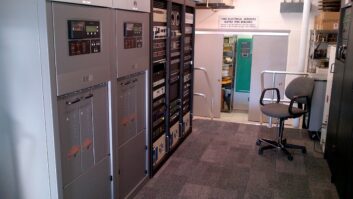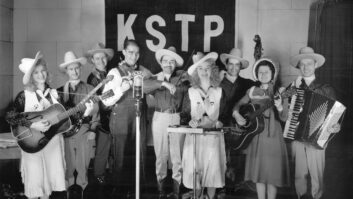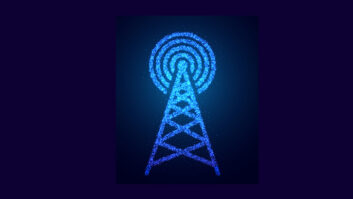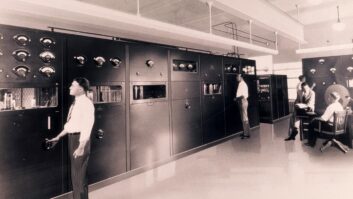After a crisis like the Haitian earthquake, people need a lot of things: food, shelter, medical aid. They also need information. The 7.0 Mw magnitude earthquake that struck on 12 January damaged the electrical grid and communications systems in Port-au-Prince, the capital, making it difficult to get information to citizens.
In addition to humanitarian aid efforts launched after the earthquake, broadcasts moved quickly to feed the need for information.
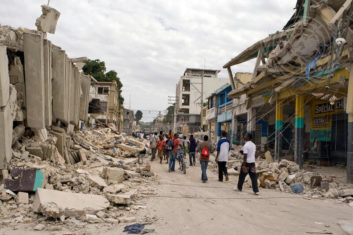
LOCAL EFFORT
Radio Signal FM, based in the Pétion-Ville, an affluent suburb in the hills outside of Port-au-Prince, was the only station in the city whose studios, equipment and antennas escaped damage from the quake, according to press reports and the station Web site. It stayed on the air, calling out the names of missing people.
According to Reporters Sans Frontières (RSF), Caraïbes FM and the RFI Haïti FM station also remained on air throughout the quake and the immediate aftermath.
The day after the quake struck, media-democratization NGO Internews has deployed a rapid response team, including media specialists and radio technicians, to Haiti. The team was charged with assessing the extent of damage to Haiti’s media infrastructure.
Internews also brought portable broadcasting equipment that can be used to get emergency information to the populace. The NGO recently completed a project in Haiti working with Rasanbleman Medya pou Aksyon Kominote (RAMAK), a grouping of 41 community radio stations across the country.
Community broadcasting association Association Mondiale de Radiodiffuseurs Communautaires (AMARC) also dispatched a team to Haiti with a focus on getting stations back on the air in Grand-Goâve, Petit-Goâve and Léogâne.
After a week in Haiti, the Internews team was working with the French government and relief groups to get a 300 W transmitter transferred from Paris to Port-au-Prince.
Radio Lumière, which operates an FM and medium-wave network that reaches 90 percent of Haiti, was initially knocked off the air, but it was able to resume broadcasting across most of its network within a week, according to the station Web site.
Although there was no apparent structural damage to its building in Côte-Plage, Radio Lumière personnel shifted the studio equipment to a tent outside the building before broadcasts resumed. The station’s transmitter site at Boutillier was heavily damaged, however.
According to RSF, some 20 stations in Port-au-Prince were back on air a week after the earthquake. About 50 stations were active in the capital region prior to the earthquake.
OUTSIDE THE CITY
RSF also noted reports that 12 radio stations in the southwestern town of Petit-Goâve were badly damaged, but some were back on air within a week. And, nearer to the capital in Léogâne, five of the city’s nine stations were back on air although much of Léogâne was badly damaged.
Working with the Haitian government and Quebecor Media of Canada, RSF has established a media operations center in the Canapé-Vert neighborhood of Port-au-Prince. The center is designed to provide Haitian journalists with the tools needed to report on their country and to act as news center for governmental agencies and NGOs, as well as to help local and international journalists meet.
A Radio France team helped get the U.N. Stabilization Mission in Haiti’s station, MINUSTAH FM, back on air. The six-person team brought more than 635 kilograms of equipment with them, including a transmitter, antenna and computers for sound editing, which was used to construct a new station based at the Port-au-Prince airport.
According to UNICEF, radio is the most common medium used by Haitians; the literacy rate in Haiti is about 62 percent.
Rebuilding help is also coming from other Caribbean broadcasters. Radio members of the Media Association of Jamaica Ltd. offered to pull together technical and equipment resources to help establish an emergency radio network in Haiti, according to the Jamaica Observer newspaper.
To aid in the rebuilding of the Haitian broadcasting sector, several equipment manufacturers are donating or slashing the cost of equipment for the relief effort, too. Broadcast Warehouse, for example, is also offering “heavily subsidized” equipment for anyone wishing to purchase items destined for Haiti, in addition to the FM transmitters and other equipment it is sending to support rebuilding efforts.
International broadcasters have reinforced their programming to Haiti in the wake of the quake, using shortwave, medium wave and FM to reach the nation.
Voice of America expanded its daily Kreyòl-language programming from 1.5 hours to 10.5 hours on weekdays and from 1 hour to 9.5 hours on weekends, including a 5 hour afternoon program focused on news and disaster-relief information.
The programming is heard on FM across the island thanks in part to Command Solo, an airborne radio and television station operated by the 193rd Special Operations Wing of the U.S. Air Force.
VOA Kreyòl is also using an AM transmitter at 1180 kHz in Marathon, Florida, to reach Haiti; normally the station carries Cuba-targeted programming from Radio Martí.
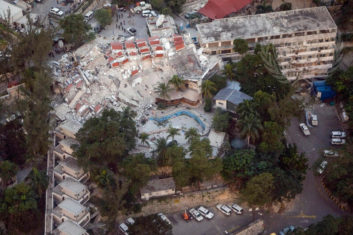
NEW PROGRAMS
The BBC World Service launched its first Kreyòl-language program on 23 January with information about aid and rescue operations, as well as messages from people trying to locate family members. The 20-minute program, produced by a BBC WS team in Miami, joins BBC Caribbean relief programming in English, French and Spanish on shortwave and via Canal Satellite Antilles.
The BBC Kreyòl program, “Connexion Haïti,” is also being aired on FM relays in Port-au-Prince, Cap-Haïtien, Gonaïves, Les Cayes, Jacmèl and Jérémie, the six largest towns in Haiti.
The same six-station FM network is airing “Ensemble, Avec Haïti / Ansanm Ansanm Avèk Ayiti” (Together, With Haiti) a new hour-long bilingual French/Kreyòl program from Radio France Internationale (RFI).
Signals from Radio 4VEH in Cap-Haïtien, in the north of Haiti, normally do not reach Port-au-Prince, but starting on 14 January its programs began being relayed on 800 kHz via an AM transmitter operated by Trans World Radio across the Caribbean in Bonaire, Netherlands Antilles.
To help displaced Haitians receive all these local and international information sources, several groups are donating portable radios, including solar-powered and wind-up radios.
Related Stories
Reminder: ‘Broadcasters for Haiti Day’ Is Feb. 1
U.S. Uses Airborne Transmitter to Aid Haiti
Arbitron, Etón Donate 1,000 Radios to Haitians
WKRK, Cleveland and Louisville Public Media Fundraise
Radio Extends Efforts to Help Haiti
SPJ Cautions Journalists in Haiti
Haiti Struggles to Reëstablish Communications
The News Never Stops
Audio Bibles, Satellite Time Donated for Relief Efforts
How NPR Is Getting to the Story in Haiti
Broadcasters Respond to Haitian Crisis
Internews Deploys to Haiti
SBS to Raise Funds for Haiti Quake Victims
FCC Loosens Rules for Haitian Radio Appeals
The U.S. military is distributing some 50,000 solar- and crank-powered portable radios across Port-au-Prince. Humanitarian organization Ears to our World shipped more than 100 wind-up radios, which also have an integrated flashlight, to Haiti in late January.
The Freeplay Foundation has established the Haiti Humanitarian Radio Relief Fund to help get solar and wind-up radios to Haitians.
FUNDRAISING
Radio groups have also been active in raising funds to aid in relief and recovery efforts. Across the United States broadcasters from Spanish Broadcasting System (SBS) in Miami to Alpha Broadcasting in Portland, Oregon, have hosted radiothons and on-air fundraisers in the wake of the earthquake.
The U.S. Federal Communications Commission (FCC) also made it easier for non-profit stations to solicit contributions for Haitian relief. (Normally, such stations are barred from raising funds for anything other than the station itself.)
1 February has been designated by the National Association of Broadcasters (NAB) as Broadcasters for Haiti Day and is asking member stations across the United States to dedicate that day’s programming to radiothons, fundraisers and other on-air efforts to raise money for Haiti.
French public radio and television joined with the Fondation de France in a national appeal for donations, “Solidarité Haïti.” The effort includes appeals on all Radio France, France Télévisions and Réseau France Outre-mer channels.
In the Netherlands, radio and television broadcasters banded together for a day of fundraising, gathering nearly €41.2 million, which was matched by the Dutch foreign aid agency. A similar effort was made in 2005 after the Indian Ocean tsunami. Six national radio stations all simulcast the same programming for the daylong effort.
PCJ Media’s “The Happy Station Show,” a shortwave program originating from Taiwan but heard in the Caribbean through shortwave station WRMI Radio Miami International, dedicated its 21 January episode to Haitian relief and recovery efforts, including work being done by Salvation Army Team Emergency Radio Network (SATERN) to provide technical communications for aid and relief efforts via amateur radio.

